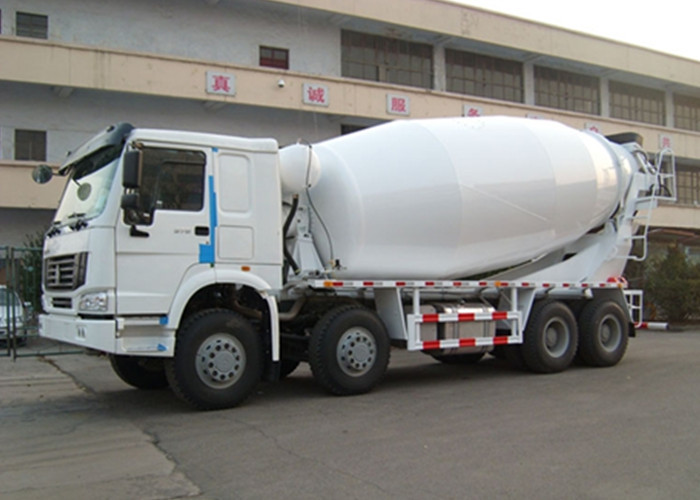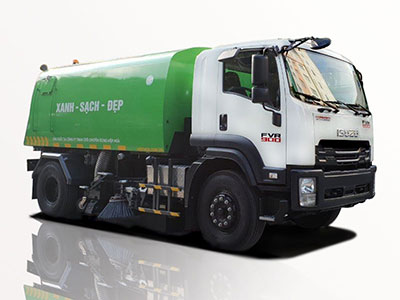Introduction
Bucket trucks are essential tools for a variety of industries, especially those involved in maintenance, construction, and utility work. One of the most critical components of a bucket truck is its hydraulic system, which relies heavily on hydraulic fluid. This article will delve into the importance of bucket truck hydraulic fluid, discussing its types, uses, maintenance tips, and more. We aim to equip you with all the knowledge needed to ensure your bucket truck operates safely and efficiently.
Understanding Hydraulic Fluid
What is Hydraulic Fluid?
Hydraulic fluid is a specialized type of liquid used to transfer power within hydraulic systems. It serves several essential functions, including lubricating components, transferring force, and dissipating heat. In bucket trucks, hydraulic fluid is fundamental for controlling the movement of the boom and bucket safely.
Types of Hydraulic Fluids
There are several types of hydraulic fluids utilized in bucket trucks, each designed for specific applications:
- Mineral Oil-based Fluids: Commonly used due to their availability and cost-effectiveness. They provide excellent lubrication and protection against corrosion.
- Water-based Fluids: These fluids are less flammable and environmentally friendly but may lack the lubricating properties of oil-based fluids.
- Synthetic Fluids: Made from chemical compounds, these fluids offer superior performance under extreme temperatures and conditions. However, they tend to be more expensive.
Choosing the Right Hydraulic Fluid for Your Bucket Truck
When selecting hydraulic fluid for your bucket truck, consider the following factors:
- Operating temperature range
- Potential environmental impact
- Compatibility with existing fluids
- Viscosity requirements
Importance of Hydraulic Fluid in Bucket Trucks
Power Transmission
The primary purpose of hydraulic fluid in bucket trucks is to transmit power from the engine to the hydraulic components. This power transfer allows the boom to extend and retract efficiently, enabling workers to reach high places safely.
Circuit Protection
Hydraulic fluid also plays a vital role in protecting the hydraulic circuit from damage. By providing lubrication, the fluid reduces wear on components, prevents overheating, and minimizes the risk of leaks.
Temperature Regulation
During operation, hydraulic systems can generate significant heat. The hydraulic fluid absorbs and dissipates this heat, ensuring the system remains within safe operating limits. Choosing the right fluid can enhance the thermal stability of the hydraulic system.
Maintaining Hydraulic Fluid in Your Bucket Truck
Fluid Replacement Schedule
Regularly replacing hydraulic fluid is crucial for maintaining the efficiency and safety of your bucket truck. Most manufacturers recommend changing the hydraulic fluid every 1,000 hours of operation or annually, whichever comes first.
Signs You Need to Change Hydraulic Fluid
- Fluid contamination (e.g., discoloration or particulates)
- Unusual sounds in the hydraulic system
- Decreased performance of the hydraulic functions
Testing Hydraulic Fluid Quality
| Test | Description | Ideal Result |
|---|---|---|
| Viscosity Test | Measures the fluid’s thickness at operating temperature. | In the manufacturer’s specified range. |
| Acidity Test | Checks for the presence of acids in the fluid. | pH level should be neutral (7). |
| Appearance Test | Visual inspection for clarity and contamination. | Clear and free of particulates. |
Common Issues with Hydraulic Fluid in Bucket Trucks
Contamination
Contamination is one of the most significant challenges faced in hydraulic systems. It can stem from dirt, water, or metal particles that reduce the efficiency of hydraulic fluid and can cause severe damage to components. Implementing proper filtration and maintenance measures can help mitigate this risk.
Fluid Leaks
Leakage is common in hydraulic systems due to wear and tear or improper seals. Identifying fluid leaks promptly can save you from costly repairs. Regular inspection of hoses and fittings is crucial for early detection.
Best Practices for Hydraulic Fluid Handling
Storage Guidelines
Proper storage of hydraulic fluid is essential to maintaining its quality. Here are some best practices:
- Store only in designated containers.
- Keep in a cool, dry place away from direct sunlight.
- Ensure containers are sealed to avoid contamination.
Transferring Hydraulic Fluid
When transferring hydraulic fluid, use clean equipment and follow these tips:
- Use funnels and hoses that are designed for hydraulic fluids.
- Clean the transfer area and equipment to prevent contamination.
- Label containers clearly to avoid mix-ups.
Practical Examples and Tips for Maintenance
Example 1: Fluid Change Procedure
Here’s a step-by-step guide for changing the hydraulic fluid in your bucket truck:
- Gather necessary tools: drain pan, new hydraulic fluid, wrenches, and safety gear.
- Start by parking the truck on a flat, level surface.
- Allow the hydraulic system to cool down for safety.
- Locate the drain plug and place the drain pan underneath.
- Remove the drain plug and let the old fluid completely drain.
- Replace the drain plug and fill the reservoir with new hydraulic fluid, checking the level regularly.
- Run the system briefly to allow the fluid to circulate, then recheck the fluid level.
- Dispose of the old hydraulic fluid according to local regulations.
Example 2: Troubleshooting Hydraulic System Issues
If you notice your bucket truck’s boom is sluggish, follow these troubleshooting steps:
- Check the hydraulic fluid level; top up if necessary.
- Inspect hoses for leaks or damage.
- Examine the filter for clogs and replace if needed.
- Monitor for unusual noises during operation and address any abnormal sounds immediately.
FAQ Section
1. How often should I change the hydraulic fluid in my bucket truck?
It is typically recommended to change the hydraulic fluid every 1,000 hours of operation or at least once a year, depending on usage and conditions.
2. What are the signs that my hydraulic fluid is contaminated?
Signs of contaminated hydraulic fluid include discoloration, presence of debris, and changes in viscosity or smell.
3. Can I mix different types of hydraulic fluids?
Mixing different types of hydraulic fluids is generally not recommended, as it can lead to reduced performance and potential damage to the system. Always consult your manufacturer’s specifications.
4. Is it safe to perform hydraulic fluid changes myself?
If you follow all safety precautions and have the required knowledge and tools, changing hydraulic fluid can be done safely. Always refer to your bucket truck’s manual for specific guidelines.
5. What should I do if I have a hydraulic fluid leak?
Address leaks immediately by inspecting hoses and fittings. Tighten connections or replace damaged parts as necessary. If the leak persists, consult a professional.
6. Are synthetic hydraulic fluids better than mineral oil-based fluids?
Synthetic hydraulic fluids often provide better performance in extreme conditions and have longer lifespans compared to mineral oil-based fluids, but they are also more expensive. The choice depends on your specific application and budget.



